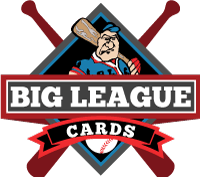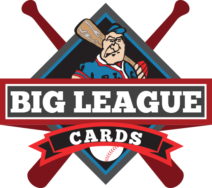Inside the Pack: What Does the Fanatics Deal Mean for Topps and Panini?
Last Thursday, the hobby world was shocked by a surprise announcement that Topps, which has made baseball cards for 70 years, would be losing both its MLB license, which allows the company to use team logos and names, and its MLBPA license, which permits the card maker to use the likenesses of players. Instead, both licenses would be given exclusively to a new company formed by Fanatics. The exclusive MLBPA also means that Panini would no longer be able to produce baseball cards. Furthermore, though not confirmed, it seems somewhat inevitable that the new Fanatics company will also reach deals with the NFL and NBA players unions, and possibly the leagues themselves, making them the sole producer of sports cards for the 3 largest sports leagues.
The implications of this news are far-reaching and there is still much that is unknown. But with a few days now to process the news, it’s possible to take a best guess at some of the most obvious questions being asked.
How did we get here?
Topps has been the exclusive manufacturer of licensed baseball cards since the 2010 season. A deal signed in 2009 gave Topps the exclusive rights to use team names and logos. Upper Deck released a Series One product in 2010 but got sued for copyright infringement by both Topps and MLB. As part of the settlement, Upper Deck was allowed to sell excess inventory of their Series One product, but no other future products. From that point until now, Topps has been the only licensed baseball card manufacturer.
Panini joined the fray as an unlicensed manufacturer in 2011 when it inked a deal with the MLBPA that allowed it to use player likenesses and names – but not team logos – on its baseball cards. Since then, Panini has issued cards with “airbrushed” photos that remove the logos from hats and jerseys. Because of this, Panini cards typically sell for much less than Topps cards, and despite fancy designs and high-end offerings, are generally seen as second fiddle.

Was anyone expecting this?
I’m sure someone somewhere was, given how the major sports leagues had begun to tie themselves to Fanatics. In general, though, no. In fact, a few short months ago, at the beginning of June, MLB announced that Topps would be the exclusive distributor of baseball NFTs. In doing so, Noah Garden, the chief revenue officer of MLB, said, “Topps is one of our oldest and most important MLB licensees and we look forward to continuing to work with them to bring new MLB-licensed trading card products in physical, digital and NFT forms to market.” So it’s pretty shocking that less than a quarter of a year later, MLB has severed ties with Topps.
What do we know as of now?
We know that MLB’s license with Topps for team logos and names continues through the 2025 season, and will move to Fanatics in 2026. We also know that MLBPA’s exclusive license with Fanatics for player names and likenesses does not start until after the 2023 season. That means, most likely, that the status quo will continue for the next two seasons, 2022 and 2023.
As for the new company, the CEO will be Josh Luber, a sneaker collector who founded StockX. StockX became a trendy spot for buying and selling high end sports cards in the last two years. The new company does not yet have a name, but MLB and MLBPA (and likely any other sports that join the fray) will have a stake in the future revenue of the company.
What don’t we know yet?
Way more than what we do know, and probably too much to list. At a high level, the name of the new company is unknown as of now, as are things like the number of products they’ll offer each year, if they will use a distributor model or sell direct to consumer, how involved with brick and mortar local card shops they will be, or even if they’ll open their own retail stores, which could sell cards alongside apparel and memorabilia.
We also don’t know what’s going on with the other leagues yet. If both the NFL and NBA sign exclusive agreements with Fanatics, it likely spells the end of Panini. Topps, on the other hand, still has Soccer contracts as well as multiple valuable non-sports properties, such as Star Wars and Garbage Pail Kids.
But the biggest question is…
What happens in 2024 and 2025?
It’s truly anyone’s guess at this point. As it stands right now, Fanatics would be allowed to make cards with current MLB player likenesses but not team names and logos. Topps would be allowed to make cards with team names and logos but not current MLB players. So, that means Fanatics could make Panini-style airbrushed baseball cards, and Topps could make cards of retired players who are not covered by the MLBPA agreement, minor leaguers who have never appeared in the majors (such as Bowman and Pro Debut products), and players who opt out of the MLBPA’s umbrella contract and instead choose to sign individual exclusive contracts with companies.
One fascinating possibility would be Fanatics somehow either licensing the Topps name or acquiring the Topps sports card division in order to make licensed baseball cards in 2024 and 2025. It seems short-sighted for a brand new company, which would need to gain favor with consumers, to enter the market with unlicensed products which typically are not well-received. A Topps licensing agreement that allowed them to utilize the exclusive MLB contract would allow the Topps name to still appear on cards while letting Fanatics get its feet wet with manufacturing cards.
What happens beyond that?
Who knows. Again, Fanatics could try to purchase or license the Topps brand name and all of its marks, like Chrome, Sapphire, Bowman, Allen and Ginter, and so on. This is a popular theory, but I don’t see it happening. Fanatics doesn’t really need Topps, and although Topps’s value takes a hit without its baseball license, they still have a massive candy business as well as the aforementioned non-sports properties.
I think I’m more inclined to believe that if Fanatics were in the buying mood, it could purchase Panini’s card division in order to continue making the popular brands, like Prizm and Mosaic, across all three sports.
Fanatics could also go in a total different direction and save a lot of money (both Panini and Topps as companies are worth over a billion dollars) and buy Upper Deck. Upper Deck currently holds the license for NHL cards, so a purchase of UD would give Fanatics all 4 major sports. Upper Deck also has the license for Marvel cards, and, perhaps most importantly, a ton of intellectual property and brand names. Years ago, Upper Deck bought out Fleer’s brand names, so an acquisition of Upper Deck would give Fanatics the rights to not just all of Upper Deck’s brand names, but Fleer’s as well. With many “lapsed” collectors coming back to the hobby over the last year and a half, the nostalgia angle would play very well. If Fanatics wanted to take it one step further, they could also try to purchase Leaf, another legacy hobby name, which also produces Pro Set cards.
In any event, there is still much to unpack from this news. More details are certain to come soon. In the meantime, let’s enjoy Topps while we still can.




